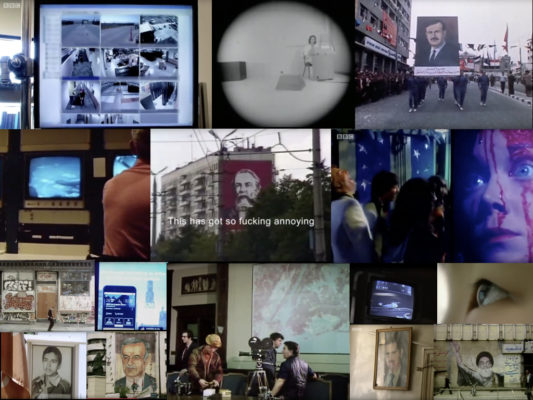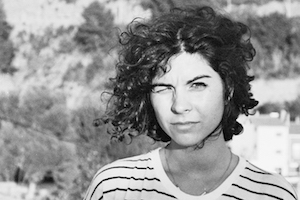Search
To search for an exact match, type the word or phrase you want in quotation marks.
A*DESK has been offering since 2002 contents about criticism and contemporary art. A*DESK has become consolidated thanks to all those who have believed in the project, all those who have followed us, debating, participating and collaborating. Many people have collaborated with A*DESK, and continue to do so. Their efforts, knowledge and belief in the project are what make it grow internationally. At A*DESK we have also generated work for over one hundred professionals in culture, from small collaborations with reviews and classes, to more prolonged and intense collaborations.
At A*DESK we believe in the need for free and universal access to culture and knowledge. We want to carry on being independent, remaining open to more ideas and opinions. If you believe in A*DESK, we need your backing to be able to continue. You can now participate in the project by supporting it. You can choose how much you want to contribute to the project.
You can decide how much you want to bring to the project.

Last Thursday, the 22nd of November, was presented the cycle of cinema and debate: Adam Curtis: A Natural history of Power. Curtis did not come; he tends to avoid public events or being filmed. One of the ridiculous reasons that he once said was that if he appeared on camera would be confused with a presenter and then the BBC would look at him in a different way. Presenters do not have power, I would rather stay as the voice-over, as a producer, he affirms to have total freedom. Moreover, he confessed having discovered that in our time not being a public image was something recommendable. However, above all, the main reason was not to be confused with a presenter.
Adam Curtis defines himself as a journalist. It is clear that there is something obvious and innovative in his work which, in spite of his reticence to be part of the art and culture field, led him last year to have a dedicated retrospective at Reina Sofía, a cycle at the CCCB, this year, and that we talk about him in A*Desk. His work is a declaration of intents; it has a clear positioning in the images and the historical tales. He is aware of the quantity of material produced daily around the world, which is enormous and has great value. The question, beyond whether it makes sense to continue producing more images revolves, in Curtis’ case, around what to do with all this material.
By recovering footage from various files of the BBC, Curtis not only develops the practise of the appropriationism by recovering material of past reports or sometimes discarded because of their waste appearance: queues, abstract scenes… we could also consider it an exercise of preservation.
He introduces to characters and fateful incidents; the distinctive feature is in the way in which he connects them. He goes back to the past of the 20thcentury with the aim to give an origin to the portraits of our present. He does it from the judge to the power, to the society and to the system itself. These ideas come to us through an immersive experience. His voice-over guides us through an attractive editing of images and sounds, without barely having space for assimilation. His recent reports seem to have been completely dissociated from the conventional report. The images do not necessarily illustrate what the voice narrates and in many occasions the voice has been substituted by the written messages and by a co-star voice. This lack of inhibition of the journalistic language has driven Curtis to collaborate with Massive attack. The projection of his videos during his concerts gives examples of, once again, the fluid way in which these move from one place to another and the importance of generating a sensorial experience in the audience.
With all this, what surprises us is that Curtis works for the BBC. According to what the presenters told us, Chema González (curator of the cycle and head of cultural activities of the Museo Reina Sofía) and Andrés Hispano (essayist and co-creator of Soy Cámara of the CCCB), the BBC is committed to showing alternative stories that challenge or enlarge the official speech. In this connection, Charlie Brooker, scriptwriter and director of the series Black Mirror, also worked in a program of the BBC: Newswipe where he unravelled certain news and the way they were presented to the public. He reminded us of Andrés Hispano when in 1957 the BBC published a report about a Swedish family in the south of Italy who collected spaghetti from their trees. Back then spaghetti was an exotic product and quite a few people called the channel to ask how to harvest spaghetti. With this first evident fake new the BBC made clear that information is easily manageable and that we cannot consider anything settled. Precisely, the manipulation of his stories is one of the accusations that are done to Curtis. However, it is well known that there are no stories free of manipulation. What is interesting, in any case, is how Curtis approaches to reality.
Title extracted from: “Everything is Going According to a Plan” by Adam Curtis.

Nerea Arrojería is an art historian specialized in photography. Among her lines of interest is the still or moving image used in contemporary societies, inside or outside the museum.
"A desk is a dangerous place from which to watch the world" (John Le Carré)